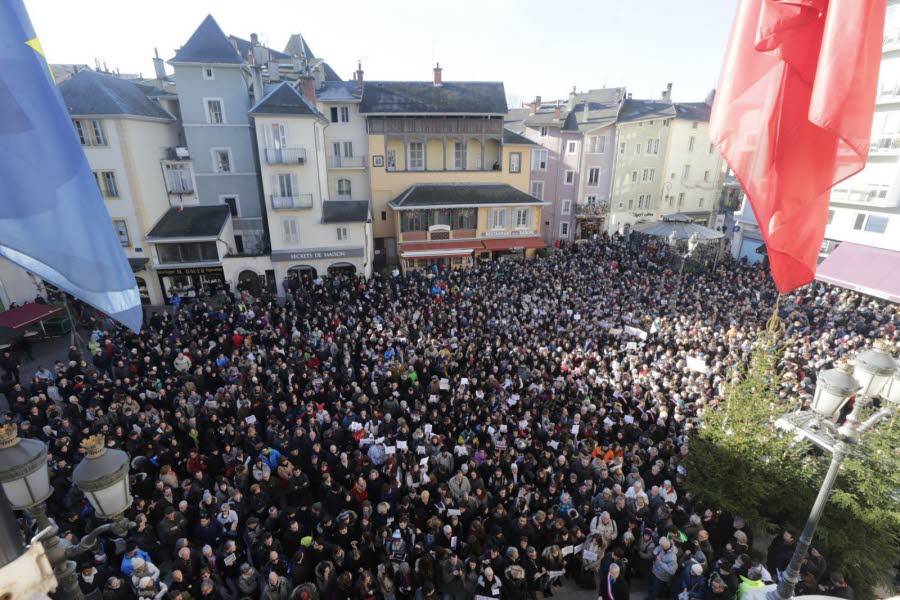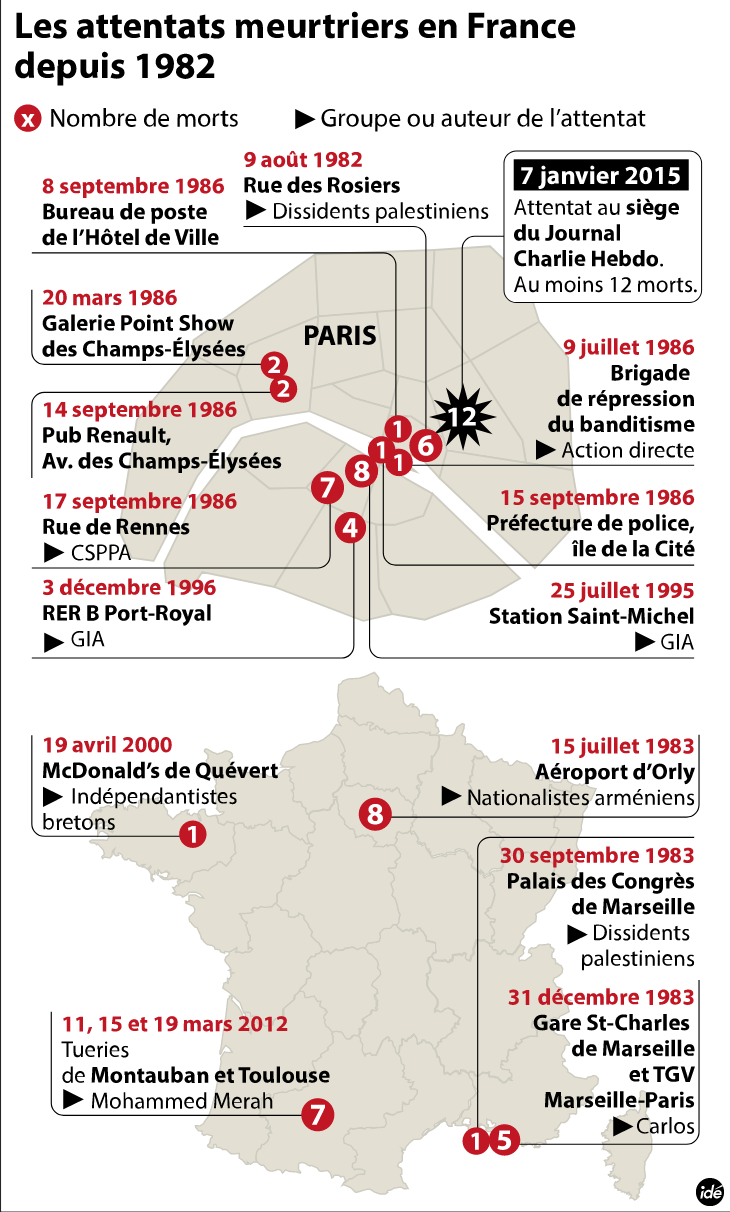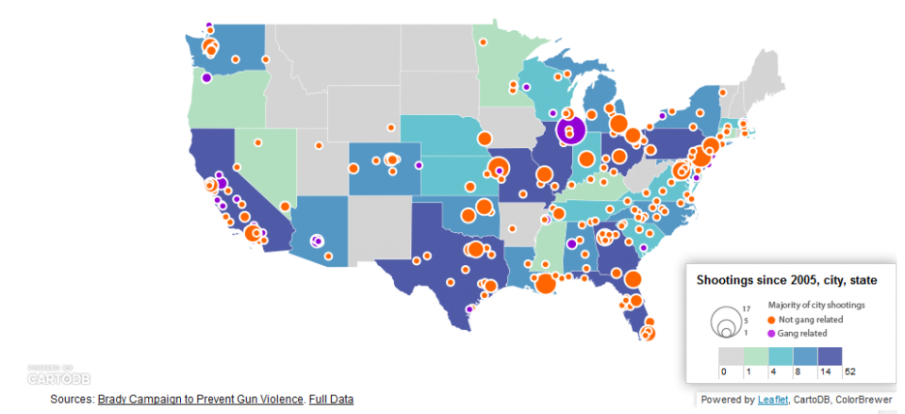Why the Charlie Hebdo Attack is So Devastaing
January 8, 2015
Cliquez ici pour une traduction de cet article en français.
On January 7, the editorial office of a weekly French satire magazine, Charlie Hebdo, was attacked by three heavily armed gunmen, suspected to be Islamic extremists. Twelve people were killed, including two police officers who responded to the scene. The response in France has been one of shock and profound loss. Nearly all of my Facebook friends from France have posted some sort of message expressing their grief, or changed their picture to a black image with the words "Je suis Charlie” (I am Charlie). There have been large vigils in Paris, but also in cities throughout the country, such as Chambéry, where 3,000 of the 57,000 residents gathered to mourn.
As an American who spent a year as an exchange student living in France, I’d like to share my perspective on why this attack was so devastating in France.
# By French standards, this truly was a massacre.
At twelve deaths, the attack on Charlie Hebdo is the largest scale shooting in Paris since World War II. Can you believe that? It seems like here in the US, we have some sort of crisis which results in a dozen deaths once a year, if not every few months. Think I’m exaggerating? Compare these graphs: one shows mass shooting deaths in the last ten years in the United States; the other shows mass shooting deaths in France since 1982.
# Secularism is a national value.
Liberté, égalité, fraternité is well known, but laïcité should be right up there, too. This word, meaning secularism, pervades French politics and French perspectives towards current events. Charlie Hebdo didn’t just critique Islam; the magazine satirized Christianity, Judaism, and all forms of organized religion. The idea, according to editor Stéphane Charbonnier, who was killed in the recent attack, was to keep critiquing Islam until doing so was just as banal as critiquing Catholicism. In the secular state of France, no religion should receive special privileges in the public sphere.
# Relations with Islam have been tense for a while.
The public focus on secularism has caused tensions in France between Muslims and the rest of the public. In 2010, France passed a law forbidding women from publicly wearing a burqa or niqab which covers the entire face. Though some may see the issue as one of freedom of religious expression, many in France see full-face coverings as a risk to public safety. When there is a challenge between religious rights and state interests in France, secularism prevails.
Immigration is another source of tension with Islam in France. Illegal immigration discussions in the United States focus mostly on Latinos, while in France, Northern African and Middle Eastern immigrants are much more common. Many of these immigrants are Muslim, and so religious bigotry often appears as a front for opposition to immigration.
Charlie Hebdo itself has been attacked in the past for critiquing Islam; in 2011 its office was destroyed by a firebomb after publishing an article said to be guest edited by the prophet Mohammed. Charbonnier was not deterred after this event, and the organization continued to satire Islam. Before the attack this week, Charlie Hebdo's account had tweeted a cartoon of the ISIS leader Abu Bakr al-Baghdadi.
# Cultural preservation is really important.
In France, there is no concept of a melting pot. While the culture varies slightly by region, by and large the population shares a rich cultural legacy that they feel must be carefully guarded. Immigration is seen not just as an economic threat, but as a threat to French culture as foreigners arrive with their own traditions and cultural practices.
In France, satire is a way of life in the media. Americans might stay up late to watch late night talk show hosts satirize current events; the French can hear it in prime time on shows like Le Petit Journal on the network Canal Plus. Charlie Hebdo was one of the most well-known satirical publications. An attack on it may seem like an attack on the French institution of satire itself.
It's unclear what social and political actions will follow from the attack on Charlie Hebdo. In any case, Patrick Pelloux, a contributor to the magazine, has promised that there will be a new issue next week. The magazine is seeking donations and support from larger media organizations in order to print one million copies next week, up from the usual sixty thousand. Readers and cartoonists around the world are hoping to prove that the pen is indeed mightier than violence, and that the first will not be silenced by the latter.



